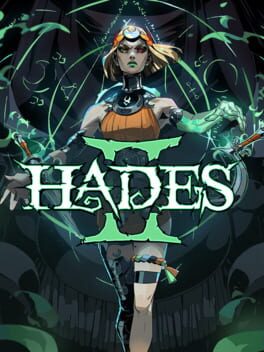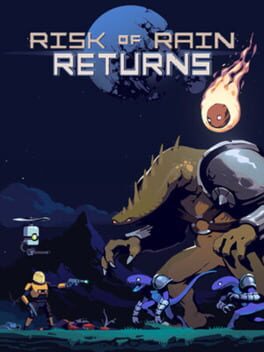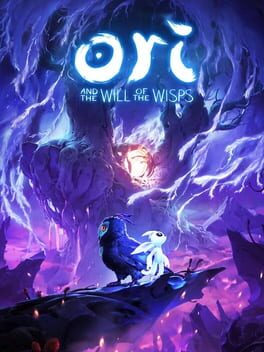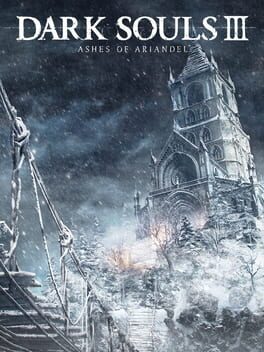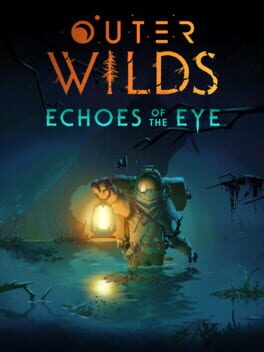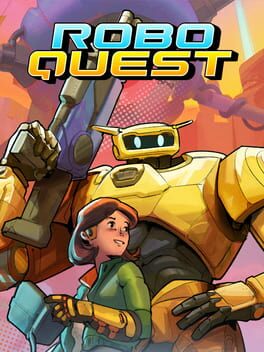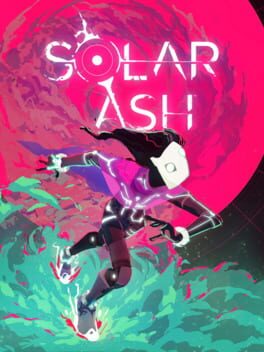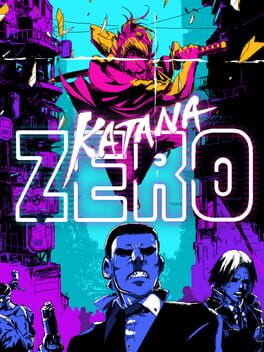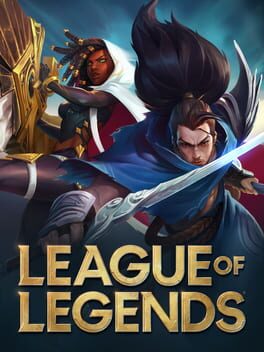Sodaholic
2024
2024
This is one of the greatest RPGs to ever exist. To keep myself short so I do not ramble on for an eternity, this is a fantastic game with fun and enjoyable gameplay in an open world that rewards curiosity. You will not be alone in this world, as those accompanying you will be your pawns. These just seemed like a fun gimmick to me at first, but they were more complex than I thought, as later on I found out that they form their tactics around the way you play, which gave me the realization that whenever they were idiots, it was actually me who was stupid all along.
And the story... Yeah, it's mid. At least the main story is, and I do not have it in me to even explain it because it is that mid. And when I say mid, I do not mean the story is terrible, because that would mean it tried to do something and failed; this story doesn't try anything. The thing I realized over time is that the main story is not what Dogma of the Dragons part two is about; the true content resides in the side quests, which are the best parts of the game. You heard me right! The side quests are better than the main story. The bonds you forge with the different characters are the Dragon's Dogma we made along the way or something. The point is that the main story is incredibly mid, but the side quests are fun and enjoyable. For the most part, at least. You see, some of the quests are comparable to the Lord of the Rings. By that, I mean you walk a lot because the fast travel system is not good.
This game, in my opinion, could have benefited from just having a regular fast travel system, or at the very least have something to compensate for the lack of fast travel. I understand that the developers of Capcom and Itsuno wanted you to actually walk around and explore the world instead of just teleporting around it. Understandable, but then why not copy a bit of Dark Souls' homework? In that game, fast travel is only accessible when you enter Anor Londo, as you have already done quite a bit of exploring. In other words, you will not have access to fast travel until later on, when you have already done some exploring. I am not saying to copy it one-to-one, as Dark Souls is not an open-world game despite its nonlinearity. It just gets annoying to trek back and forth to places you have already been to. Another criticism would be that the poor PC optimization on day one was, of course, unacceptable, but that was fixed after a week. Also, this is a Japanese dev team we are talking about; a slightly broken PC port is practically on the to-do list for them. The rest of my criticism are more or less nitpicks. So, after listing off all the negative stuff, it is now that I must put on my armor and become a white knight for this game due to the abundance of criticism talking about the microtransactions. My brothers in Christ, this is Capcom we are talking about! Resident Evil 4 Remake has them; Devil May Cry 5 also has them, but now you want to bring it up and then use it as a way for people to not buy the game? If you want to bring it up as a bad thing (which it is) and trash on the greedy executives for implementing it (which is always morally right), then I understand. The problem is that people are making it out to be like this is a pay-to-win game, which it is not, as it is possible to play this game from start to finish without paying a single real-life dime. I did that; you can do it too.
Anyway, time to sum up everything. This is a fun game with a fantastic open world. As stated before, the story is mid, but the side content is where the true journey lies. There is a WHOLE LOT I did not talk about; this game is just that big. I also wanted to keep this spoiler-free. This is a game you should play if you have both the money to buy it and the time to play it. Dragon's Dogma 2 is looking to be a game of the year contender. The only problem is that the ELDEN RING DLC IS ALSO COMING THIS YEAR! ELDEN RING GAME OF THE YEAR AGAIN! SHADOW OF THE ERDTREE SWEEEEEEEEEEEP!
And the story... Yeah, it's mid. At least the main story is, and I do not have it in me to even explain it because it is that mid. And when I say mid, I do not mean the story is terrible, because that would mean it tried to do something and failed; this story doesn't try anything. The thing I realized over time is that the main story is not what Dogma of the Dragons part two is about; the true content resides in the side quests, which are the best parts of the game. You heard me right! The side quests are better than the main story. The bonds you forge with the different characters are the Dragon's Dogma we made along the way or something. The point is that the main story is incredibly mid, but the side quests are fun and enjoyable. For the most part, at least. You see, some of the quests are comparable to the Lord of the Rings. By that, I mean you walk a lot because the fast travel system is not good.
This game, in my opinion, could have benefited from just having a regular fast travel system, or at the very least have something to compensate for the lack of fast travel. I understand that the developers of Capcom and Itsuno wanted you to actually walk around and explore the world instead of just teleporting around it. Understandable, but then why not copy a bit of Dark Souls' homework? In that game, fast travel is only accessible when you enter Anor Londo, as you have already done quite a bit of exploring. In other words, you will not have access to fast travel until later on, when you have already done some exploring. I am not saying to copy it one-to-one, as Dark Souls is not an open-world game despite its nonlinearity. It just gets annoying to trek back and forth to places you have already been to. Another criticism would be that the poor PC optimization on day one was, of course, unacceptable, but that was fixed after a week. Also, this is a Japanese dev team we are talking about; a slightly broken PC port is practically on the to-do list for them. The rest of my criticism are more or less nitpicks. So, after listing off all the negative stuff, it is now that I must put on my armor and become a white knight for this game due to the abundance of criticism talking about the microtransactions. My brothers in Christ, this is Capcom we are talking about! Resident Evil 4 Remake has them; Devil May Cry 5 also has them, but now you want to bring it up and then use it as a way for people to not buy the game? If you want to bring it up as a bad thing (which it is) and trash on the greedy executives for implementing it (which is always morally right), then I understand. The problem is that people are making it out to be like this is a pay-to-win game, which it is not, as it is possible to play this game from start to finish without paying a single real-life dime. I did that; you can do it too.
Anyway, time to sum up everything. This is a fun game with a fantastic open world. As stated before, the story is mid, but the side content is where the true journey lies. There is a WHOLE LOT I did not talk about; this game is just that big. I also wanted to keep this spoiler-free. This is a game you should play if you have both the money to buy it and the time to play it. Dragon's Dogma 2 is looking to be a game of the year contender. The only problem is that the ELDEN RING DLC IS ALSO COMING THIS YEAR! ELDEN RING GAME OF THE YEAR AGAIN! SHADOW OF THE ERDTREE SWEEEEEEEEEEEP!
2023
I never played the original, but I am a massive Risk of Rain 2 fan, so I gave the remake a try, and although I do not have many hours yet and have only beaten the final boss once, I still wanted to write this review.
To start with, the visuals are a massive upgrade with the details that were added, making the pixel art lovely to look at. And Chris Christodoulou, the composer, came back to remake the soundtrack, and my god, he is underrated. The OST slaps so hard. Anyway, the actual game itself is where I may be a bit more critical. Unlike its sequel, this game is 2D, and it can be hard to see in a way. In RoR2, you can see farther because it's 3D compared to this game, where I have to scour the land more, which takes longer and makes the game harder as the difficulty increases over time. The game also feels slower and more restrained compared to its sequel, where one of the main reasons why I and almost everyone else love it is because it lets you become an agent of chaos, demolishing everything in your path. I am assuming Hopoo wanted you to be an actual survivor, so you have to fight and scratch more. I am also comparing the two games instead of judging the game on its own, but what I am trying to say is basically that Risk of Rain Returns did not give me an addiction like RoR2 did.
Bottom line: Perchance of Drizzle Comes Back is a great game with stunning visuals and a baller soundtrack, and though the gameplay does not do it for me as RoR2 did, it is still a competent game.
To start with, the visuals are a massive upgrade with the details that were added, making the pixel art lovely to look at. And Chris Christodoulou, the composer, came back to remake the soundtrack, and my god, he is underrated. The OST slaps so hard. Anyway, the actual game itself is where I may be a bit more critical. Unlike its sequel, this game is 2D, and it can be hard to see in a way. In RoR2, you can see farther because it's 3D compared to this game, where I have to scour the land more, which takes longer and makes the game harder as the difficulty increases over time. The game also feels slower and more restrained compared to its sequel, where one of the main reasons why I and almost everyone else love it is because it lets you become an agent of chaos, demolishing everything in your path. I am assuming Hopoo wanted you to be an actual survivor, so you have to fight and scratch more. I am also comparing the two games instead of judging the game on its own, but what I am trying to say is basically that Risk of Rain Returns did not give me an addiction like RoR2 did.
Bottom line: Perchance of Drizzle Comes Back is a great game with stunning visuals and a baller soundtrack, and though the gameplay does not do it for me as RoR2 did, it is still a competent game.
Nice game with fluid movement and mesmerizing visuals, accompanied by Gareth Coker's remarkable soundtrack. The only drawback is the story, which has an interesting premise but throws away that to shoehorn in a different ending that was not all well communicated. Even so, Ori and the Will of the Wisps is underrated, at least to me, and definitely worth your time.
Nah, this DLC is not worth 15 dollars.
It's short, containing only two bosses, with only one being an actual boss. The level design is nothing spectacular; the enemies are nothing special, either. And Friede is not a good boss design. She feels too fast for a Dark Souls game; her invisibility is god-awful. Priscilla had a similar ability, but it was actually possible to see where she was and when she would strike, compared to Friede. The boss having three phases is pretty baller, and would have been better if not for how bad everything else is. Father Ariandel joins in the second phase, where he either does nothing or is incredibly annoying. That is the word for this entire boss; it's not hard, just insanely annoying. Nameless King is a hard fight done right.
The only redeeming parts of the DLC are that it leads me into the next DLC, Ringed City, and also has the Painter Girl, and I swear to the gods of Anor Londo, Miyazaki, that if anything bad happens to her, I will summon ten swamps outside of your house! Hopefully, the Ringed City DLC is better.
The only thing Ashes of Ariandel proves is that Dark Souls II is not bad because of the absence of Miyazaki.
It's short, containing only two bosses, with only one being an actual boss. The level design is nothing spectacular; the enemies are nothing special, either. And Friede is not a good boss design. She feels too fast for a Dark Souls game; her invisibility is god-awful. Priscilla had a similar ability, but it was actually possible to see where she was and when she would strike, compared to Friede. The boss having three phases is pretty baller, and would have been better if not for how bad everything else is. Father Ariandel joins in the second phase, where he either does nothing or is incredibly annoying. That is the word for this entire boss; it's not hard, just insanely annoying. Nameless King is a hard fight done right.
The only redeeming parts of the DLC are that it leads me into the next DLC, Ringed City, and also has the Painter Girl, and I swear to the gods of Anor Londo, Miyazaki, that if anything bad happens to her, I will summon ten swamps outside of your house! Hopefully, the Ringed City DLC is better.
The only thing Ashes of Ariandel proves is that Dark Souls II is not bad because of the absence of Miyazaki.
2016
This review contains spoilers
First off, whoever thought of tying in Covenant awards to the Sorceries, Miracles, Pyromancies, and Rings achievements, I will have your spine on a dinner plate! In minecraft.
To keep it as short as I can, the game is extraordinary. The developers at FromSoftware clearly learn from their past, as each game they make improves on what the last game did. Most notably their bosses, both from a design perspective and a gameplay one. Certain people will look at the gameplay and say that it's just a game of dodge, attack, dodge, and maybe heal. Personally, I don't see it that way. The best fights will feel like a dance of sorts, meaning they will have a rhythm you can follow. Which is why Pontiff Sulyvahn is, at least in my opinion, a terrible boss compared to everyone else. His attacks are poorly telegraphed, which results in there being no flow. Also, simplifying any game to its core makes it sound stupid. "Yeah, Mario Odyssey is kinda mid; all you do is run and jump, and maybe throw your hat around." The main point is that, sure, the mechanics don't sound that special; it is how you use them that creates the interesting scenarios.
FromSoft has always been competent in enviermental storytelling; as a matter of fact, that is your best way to distinguish what has happened. Although the main premise is explained to you at the start: the world is on its dying breath, and the Lords of Cinders have been brought back, only to reject Linking the First Flame. Meaning you have to step in and bring back the Lords as what they are: you have to bring them back as Cinders. However, this is a FromSoft game, so you have to have critical thinking skills and be analytical about the game. If you are, you will, presumably, think that saving the world is not worth it. After all, it does not look like a dying world; it looks like it is already dead—a corpse masquerading as something else. So the question becomes: Is it worth saving a world in pain or letting it die? That is the main question, and I believe the answer is obvious. Which is why Linking the First Flame ending is actually my favorite. The game makes an effort to tell you not to link it, and if you do, you are greeted with an intentionally bathetic ending. In a weird way, it treats you like a fool for believing this to be the right answer. And before anyone criticizes the game for being too similar to the first Dark Souls game, remember that the other themes involve cycles and/or repetition. You are not the first to be the valorous hero who has come to save the day. Many have tried, and in reality, you aren't that special. You just got farther than everyone else. This makes the game sound nihilistic, and that is a valid reading of the game. And so is existentialism; it is not as simple as "nothing matters; therefore, the world needs to die." It is more intricate than that. Death does not always mean the end; for example, in tarot cards, death does not literally mean the ending of existence; rather, it means an end to a phase of your life, so it can blossom into something new. In simpler terms, it means change, which is what the world is scared of—it is what you are scared of. It is true that change is indeed scary; it can be bizarre, but it would certainly be better than living in a world of ash and cinders.
Music is pretty peak when used, as the game will only play it at certain areas or during a boss fight. Outside of that, your ears will only pick up the ambient noise of the area. The Soulsborne games soundtrack usually carries that bombastic grandiose feel to it, and Yuka Kitamura nails that in this game. The second phase of Twin Princes is always baller.
After writing all of this, the main reason it is not a 5/5 is because I really dislike areas like the Catacombs of Carthus and Irithyll dungeon, and, out of all the bosses, Pontiff Sulyvahn sticks out like a sore thumb because of how bad he is compared to them. The runbacks to the bosses can be atrocious, and there are times when the "difficulty" was the developers spamming a bunch of enemies. And the level of design ranges from great to eh, although that ties back to the areas I disliked. The environment and vistas suffer from being analogous in that the general color scheme of the entire game is gray and yellow (not the piss color filter). Of course, that ties back to the overarching theme, and it makes areas like Irithyll of the Boreal Valley stand out a bit more visually from the rest. Either way, it is still a criticism worth bringing up. Aside from that and minor nitpicks, this game is truly great and, in my opinion, the best in the trilogy. Honestly, I believe what I have written does not do the game justice. Also, the best boss is the final one, Soul of Cinder, as he represents the entire game in one boss fight. It is in the name: SOUL of CINDER.
To keep it as short as I can, the game is extraordinary. The developers at FromSoftware clearly learn from their past, as each game they make improves on what the last game did. Most notably their bosses, both from a design perspective and a gameplay one. Certain people will look at the gameplay and say that it's just a game of dodge, attack, dodge, and maybe heal. Personally, I don't see it that way. The best fights will feel like a dance of sorts, meaning they will have a rhythm you can follow. Which is why Pontiff Sulyvahn is, at least in my opinion, a terrible boss compared to everyone else. His attacks are poorly telegraphed, which results in there being no flow. Also, simplifying any game to its core makes it sound stupid. "Yeah, Mario Odyssey is kinda mid; all you do is run and jump, and maybe throw your hat around." The main point is that, sure, the mechanics don't sound that special; it is how you use them that creates the interesting scenarios.
FromSoft has always been competent in enviermental storytelling; as a matter of fact, that is your best way to distinguish what has happened. Although the main premise is explained to you at the start: the world is on its dying breath, and the Lords of Cinders have been brought back, only to reject Linking the First Flame. Meaning you have to step in and bring back the Lords as what they are: you have to bring them back as Cinders. However, this is a FromSoft game, so you have to have critical thinking skills and be analytical about the game. If you are, you will, presumably, think that saving the world is not worth it. After all, it does not look like a dying world; it looks like it is already dead—a corpse masquerading as something else. So the question becomes: Is it worth saving a world in pain or letting it die? That is the main question, and I believe the answer is obvious. Which is why Linking the First Flame ending is actually my favorite. The game makes an effort to tell you not to link it, and if you do, you are greeted with an intentionally bathetic ending. In a weird way, it treats you like a fool for believing this to be the right answer. And before anyone criticizes the game for being too similar to the first Dark Souls game, remember that the other themes involve cycles and/or repetition. You are not the first to be the valorous hero who has come to save the day. Many have tried, and in reality, you aren't that special. You just got farther than everyone else. This makes the game sound nihilistic, and that is a valid reading of the game. And so is existentialism; it is not as simple as "nothing matters; therefore, the world needs to die." It is more intricate than that. Death does not always mean the end; for example, in tarot cards, death does not literally mean the ending of existence; rather, it means an end to a phase of your life, so it can blossom into something new. In simpler terms, it means change, which is what the world is scared of—it is what you are scared of. It is true that change is indeed scary; it can be bizarre, but it would certainly be better than living in a world of ash and cinders.
Music is pretty peak when used, as the game will only play it at certain areas or during a boss fight. Outside of that, your ears will only pick up the ambient noise of the area. The Soulsborne games soundtrack usually carries that bombastic grandiose feel to it, and Yuka Kitamura nails that in this game. The second phase of Twin Princes is always baller.
After writing all of this, the main reason it is not a 5/5 is because I really dislike areas like the Catacombs of Carthus and Irithyll dungeon, and, out of all the bosses, Pontiff Sulyvahn sticks out like a sore thumb because of how bad he is compared to them. The runbacks to the bosses can be atrocious, and there are times when the "difficulty" was the developers spamming a bunch of enemies. And the level of design ranges from great to eh, although that ties back to the areas I disliked. The environment and vistas suffer from being analogous in that the general color scheme of the entire game is gray and yellow (not the piss color filter). Of course, that ties back to the overarching theme, and it makes areas like Irithyll of the Boreal Valley stand out a bit more visually from the rest. Either way, it is still a criticism worth bringing up. Aside from that and minor nitpicks, this game is truly great and, in my opinion, the best in the trilogy. Honestly, I believe what I have written does not do the game justice. Also, the best boss is the final one, Soul of Cinder, as he represents the entire game in one boss fight. It is in the name: SOUL of CINDER.
2019
This game is in the so-called genre of: you can only play it once, so reading anything about it can be considered a spoiler. Therefore, I will, of course, not have any spoilers; however, if you loved the base game, then this DLC is a nice little bonus.
To start with, Aside from one gripe I have with Outer Wilds, it is undoubtedly an outstanding game. It is well-crafted and creative, making sure the exploration never gets old or tiresome. Mobius cooked, and it shows. After being done with the game, I put it down for a while until I decided to finally try the DLC. So, after playing it, I can wholeheartedly say that I adore Echoes of the Eye more than the base game. My only complaint is some of the horror stuff—more or less how it could have been better. If anything, EOTE delves more into eerinees than horror, and it nails the eerie part well. Andrew Prahlow also composes for the DLC, so the soundtrack is, naturally, entrancing to listen to.
Overall, Echoes of the Eye is a good DLC, and I could ramble on about some of my favorite bits, but then we would be here for a while, and this is a spoiler-free review. Basically, what I am trying to say is: gaem gud.
To start with, Aside from one gripe I have with Outer Wilds, it is undoubtedly an outstanding game. It is well-crafted and creative, making sure the exploration never gets old or tiresome. Mobius cooked, and it shows. After being done with the game, I put it down for a while until I decided to finally try the DLC. So, after playing it, I can wholeheartedly say that I adore Echoes of the Eye more than the base game. My only complaint is some of the horror stuff—more or less how it could have been better. If anything, EOTE delves more into eerinees than horror, and it nails the eerie part well. Andrew Prahlow also composes for the DLC, so the soundtrack is, naturally, entrancing to listen to.
Overall, Echoes of the Eye is a good DLC, and I could ramble on about some of my favorite bits, but then we would be here for a while, and this is a spoiler-free review. Basically, what I am trying to say is: gaem gud.
2020
The rogue-like/lite genre has quickly become my favorite over time. My gateway being Risk of Rain 2, which has stayed at the top and will presumably stay that way. So, when I heard about a funky little FPS robot rogue-lite game with overwhelmingly positive reviews, it naturally peaked my interest.
I bought it, played it, "finished" it, and I was not disappointed. The game offers six different classes with one primary ability and a secondary, along with upgrades for said abilities; and in rogue-like/lite fashion, the game will start off semi-slow but will increase quickly with more upgrades. Movement is a big part of the game as it is a movement shooter, and the number one rule of movement shooters is DO NOT STAND STILL! It is self-explanatory why you shouldn't. The movement could have gone harder, though; Roboquest only has guardrails to boost your speed and double jumping. Just a minor complaint from my end. Your biggest enemy will be the RNG, which is a prominent mechanic in rogue-likes. It usually spices up the gameplay and is what makes it replayable. The only RNG in this game that can make or break your run is what weapons you get. Now, I am sure all of the weapons can be used in an effective manner; however, the weapons I am not good with are objectively the bad ones.
Lastly, there is a story; without going into spoilers, it's... Okay? It's nothing thought-provoking, although with the rampant talk and rise of AI, it did come out at a fitting time. Also, f#ck AI art.
I bought it, played it, "finished" it, and I was not disappointed. The game offers six different classes with one primary ability and a secondary, along with upgrades for said abilities; and in rogue-like/lite fashion, the game will start off semi-slow but will increase quickly with more upgrades. Movement is a big part of the game as it is a movement shooter, and the number one rule of movement shooters is DO NOT STAND STILL! It is self-explanatory why you shouldn't. The movement could have gone harder, though; Roboquest only has guardrails to boost your speed and double jumping. Just a minor complaint from my end. Your biggest enemy will be the RNG, which is a prominent mechanic in rogue-likes. It usually spices up the gameplay and is what makes it replayable. The only RNG in this game that can make or break your run is what weapons you get. Now, I am sure all of the weapons can be used in an effective manner; however, the weapons I am not good with are objectively the bad ones.
Lastly, there is a story; without going into spoilers, it's... Okay? It's nothing thought-provoking, although with the rampant talk and rise of AI, it did come out at a fitting time. Also, f#ck AI art.
I understand the appeal, and Lucas Pope did a phenomenal job on this game. Even so, I wasn't ruminating on it after playing it, or not as much as I thought. I believe the story—although intriguing from the start—wasn't on par with the rest of the game. I had heard nothing but praise for the game, so I presumably set my expectations too high and expected way more. Nevertheless, it is still an outstanding mystery puzzle game with fascinating mechanics and a hard recommendation for anyone.
2021
Just finished the game, and by finished, I hunted for every achievement the game had. Yes, I do need to touch grass.
The movement is nice, although it will usually boil down to whether you can find the so-called flow when playing the game. Combat is serviceable, and by that, I mean spam the attack button whenever there are enemies near by, so it won't be the reason to play the game. And without spoilers, the story is surprisingly captivating. Overall, a good game and severely underrated!
The movement is nice, although it will usually boil down to whether you can find the so-called flow when playing the game. Combat is serviceable, and by that, I mean spam the attack button whenever there are enemies near by, so it won't be the reason to play the game. And without spoilers, the story is surprisingly captivating. Overall, a good game and severely underrated!
2019
2009
Hot take: the game itself is not bad; it is the playerbase that consists of troglodytes.
Just download Legends of Runeterra instead.
Edit: Nvm, Riot Games just fired 530 employees and just shut down Riot Forge, and Legends of Runeterra is on life support now. Oh, and most of the fired employees were creatives (i.e., artists, musicians, and writers)! I can't wait for gaming companies to use AI to replace talented, creative, and amazing human beings because money!
Just download Legends of Runeterra instead.
Edit: Nvm, Riot Games just fired 530 employees and just shut down Riot Forge, and Legends of Runeterra is on life support now. Oh, and most of the fired employees were creatives (i.e., artists, musicians, and writers)! I can't wait for gaming companies to use AI to replace talented, creative, and amazing human beings because money!
